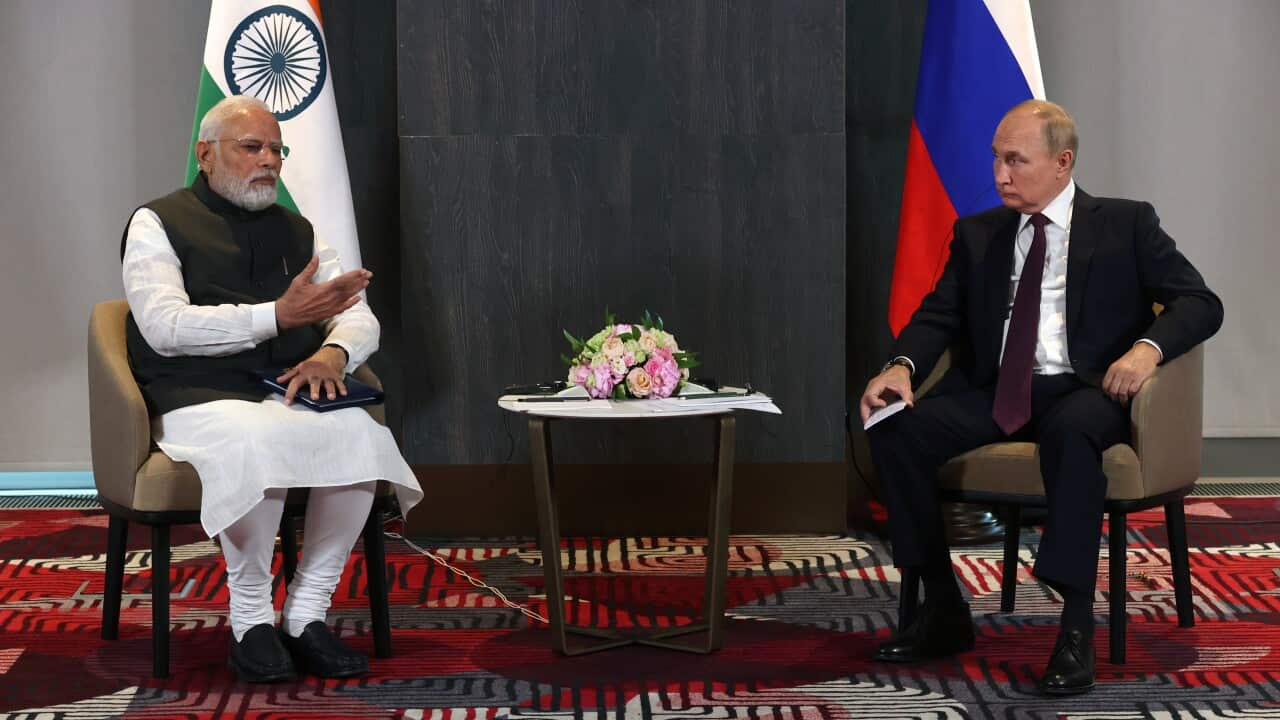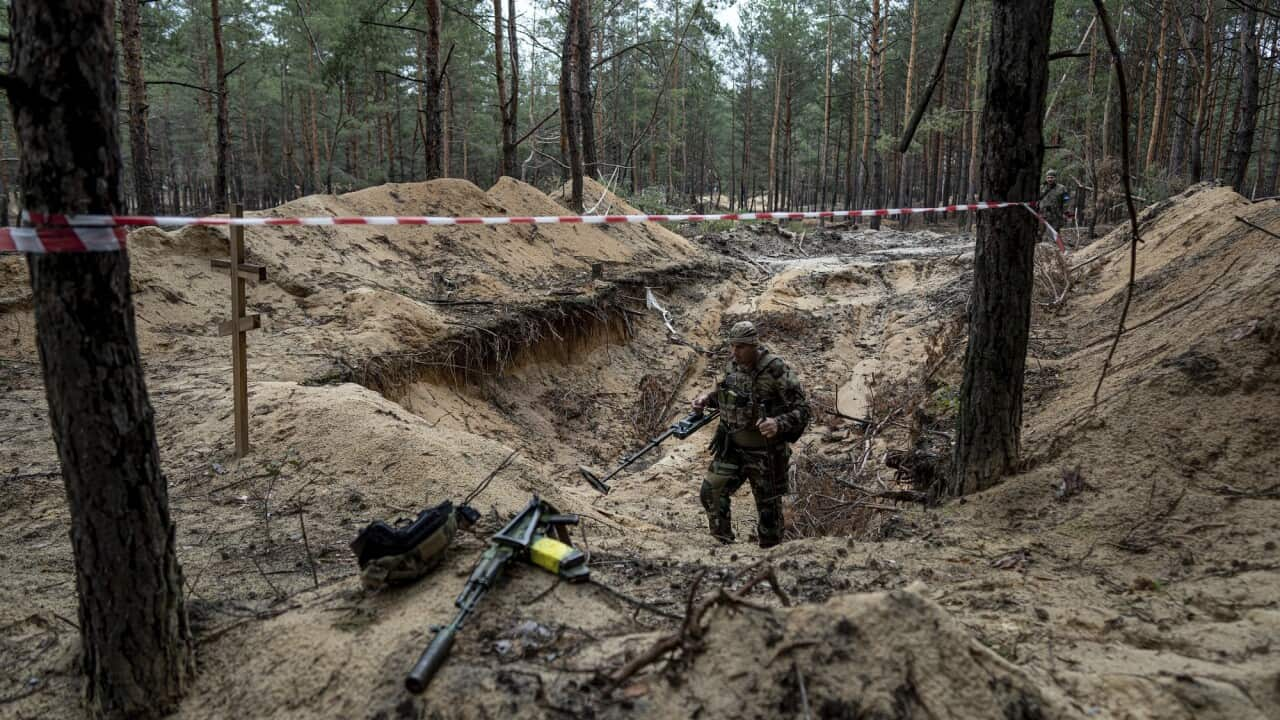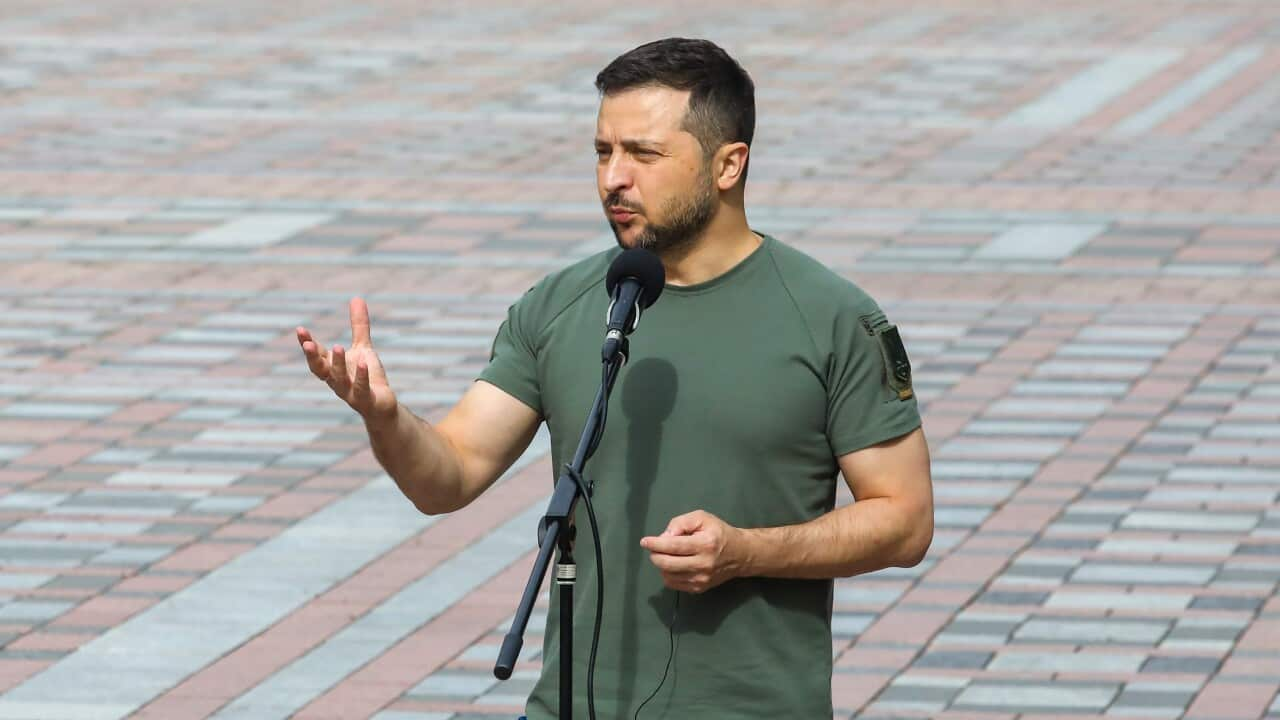Indian Prime Minister Narendra Modi told Russian President Vladimir Putin on Friday that now was not the time for war, directly assailing the Kremlin chief in public over the nearly seven-month-long conflict in Ukraine.
Locked in a confrontation with the West over the war, Mr Putin has repeatedly said Russia is not isolated because it can look eastwards to major Asian powers such as China and India.
But at a summit of the Shanghai Cooperation Organisation (SCO), concerns spilled out into the open.
"I know today's time is not a time for war, and I have spoken to you on the phone about this," Mr Modi told Mr Putin at a televised meeting in the ancient Uzbek Silk Road city of Samarkand.
As Mr Modi made the remark, Russia's paramount leader since 1999 pursed his lips, glanced at Mr Modi and then looked down before touching the hair on the back of his head.
Mr Putin told Mr Modi that he understood the Indian leader had concerns about Ukraine, but that Moscow was doing everything it could to end the conflict.
"I know your position on the conflict in Ukraine, the concerns that you constantly express," Mr Putin said. "We will do everything to stop this as soon as possible."
India has shied away from explicitly condemning Russia for the invasion, which sent the price of oil and other commodities soaring.
'Democracy and diplomacy and dialogue'
But Mr Modi stressed the importance of "democracy and diplomacy and dialogue" in the meeting, footage showed on Indian public service broadcaster Doordarshan.
They would discuss "how to move forward on the path of peace", Mr Modi added.
Mr Putin said Ukraine had rejected negotiations. Ukraine has said it will fight until it drives all Russian troops from its land.
Ukrainian President Volodymyr Zelenskyy says he will never accept a "peace" that allows Russia to keep Ukrainian land.
The war in Ukraine, triggered when Mr Putin ordered troops to invade on 24 February, has killed tens of thousands of soldiers, touched off the worst confrontation with the West since the Cold War and sent the global economy into an inflationary spiral.
Balancing act
New Delhi has long walked a tightrope in its relations with the West and Moscow — and the Russian invasion of Ukraine has highlighted the difficulty of that balancing act.
It has urged a cessation of hostilities but repeatedly brushed off calls from Washington to condemn Russia, despite India pursuing greater security ties with the United States.
Unusually, India is a member of both the SCO and the so-called Quad, a strategic bloc grouping it, the United States, Japan and Australia, and aimed at providing a more substantive counterweight to China's rising military and economic power.
Former Indian ambassador to Russia Pankaj Saran described Mr Modi's comments as "quite frank" in saying that the Ukraine crisis "had caught the attention of the whole world and created problems for the developing world".
'Strong message'
"This was a fairly strong message to Russia," he told Doordarshan.
"As a friend, his recommendation and India's position is that this needs to be resolved only through dialogue and diplomacy."
Mr Putin visited New Delhi late last year, bear-hugging Mr Modi and hailing India as a "great power" as the two men bolstered military and energy ties.
India is the world's second-largest importer of arms after Saudi Arabia, and according to the Business Standard, between 2016-20, 49.4 per cent of its purchases were from Russia.
The Asian giant of 1.4 billion people is also a major consumer of Russian oil, ramping up discounted purchases in the wake of a Western embargo.
Colour revolutions
On Thursday, Mr Putin told Chinese President Xi Jinping he understood that Mr Xi had concerns about the situation in Ukraine but praised Beijing's leader for a "balanced" position on the conflict.
Mr Xi, on his first trip outside China since early 2020, did not mention the war in Ukraine in public.
The Chinese leader said the world had entered a new period of turmoil and that partners such as Putin and Central Asian leaders should prevent foreign powers from instigating "colour revolutions".
"The world has entered a new period of turbulent change, we must grasp the trend of the times, strengthen solidarity and cooperation, and promote the construction of a closer community of destiny with the Shanghai Cooperation Organization," Mr Xi said.

Russian President Vladimir Putin (L) and Chinese President Xi Jinping (C) clink glasses. Source: AAP
'Zero-sum games and bloc politics'
Mr Xi criticised "zero-sum games and bloc politics", a veiled reference to the United States which Beijing has criticised in the past for leaning on allies to counter China's spectacular rise to the status of a superpower in waiting.
Mr Putin has repeatedly said that the United States is plotting so-called "colour revolutions" similar to those which swept established elites from power in places such as Ukraine.
The United States denies such claims and says they show the paranoid nature of Mr Putin's Russia.
The conflict in eastern Ukraine began in 2014 after a pro-Russian president was toppled in the "Maidan" Revolution and Russia annexed Crimea, with Russian-backed separatists fighting Ukraine's armed forces.
China's stability-obsessed Communist Party, which is next month likely to give Mr Xi a third leadership term and cement his place as the country's most powerful leader since Mao Zedong, has in the past warned against so called "colour revolutions".
Mr Xi stayed away from a dinner attended by 11 heads of states in line with his delegation's COVID-19 policy, a source in the Uzbek government told Reuters on Friday.














